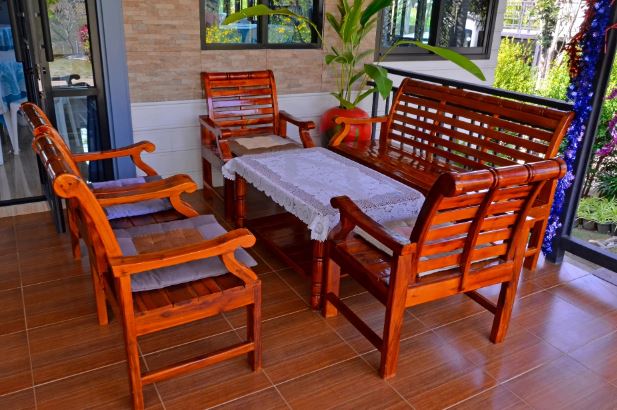
The European Union (EU27) and the United Kingdom (UK) increased
their imports of Malaysian tropical wooden furniture by 21 per
cent to 80,000 tonnes in the first 11 months of 2024 (11M2024)
compared to the same period in 2023, according to the
International Tropical Timber Organisation (ITTO).
Malaysia remains the second-largest supplier of tropical
wooden furniture to Europe, behind Vietnam, which saw a 9 per
cent rise in exports to 148,000 tonnes.
Following a sharp decline in 2023, European imports from key
tropical suppliers rebounded in 2024.
Imports from India grew 11 per cent to 75,000 tonnes, while
those from Indonesia (-8 per cent to 63,000 tonnes), Brazil (-5
per cent to 43,000 tonnes), Thailand (-28 per cent to 4,000
tonnes), and Singapore (-30 per cent to 2,000 tonnes) declined.
Most major European destinations for tropical wooden
furniture saw modest recovery in 2024: UK (+3 per cent to
131,100 tonnes), France (+5 per cent to 69,500 tonnes), Germany
(+13 per cent to 54,400 tonnes), Spain (+17 per cent to 30,900
tonnes), Belgium (+5 per cent to 22,100 tonnes), Denmark (+4 per
cent to 10,200 tonnes), Poland (+1 per cent to 8,200 tonnes)
Italy was the only major market to record a decline (-2 per cent
to 8,300 tonnes).
The ITTO report highlighted that China¡¯s wooden furniture
exports to Europe surged by more than 35 per cent in 2024 to
1.53 million tonnes, up from 1.26 million tonnes in 2023.
In contrast, Europe¡¯s imports from tropical countries grew only
6 per cent to 430,000 tonnes.
UK imports from China rose 16 per cent to 445,000 tonnes in
2024, while EU imports jumped 44 per cent to 1.09 million tonnes.
China¡¯s exports surged across all key European markets,
including France (+35 per cent to 236,000 tonnes), Netherlands
(+65 per cent to 202,000 tonnes), Germany (+34 per cent to
192,000 tonnes), Spain (+46 per cent to 82,000 tonnes), Italy
(+28 per cent to 59,000 tonnes)
China¡¯s resurgence follows a sharp decline in 2022 due to
COVID-19 lockdowns.
Lower production costs, improved manufacturing efficiency, and
aggressive marketing have enhanced its competitiveness,
especially as European producers struggle with rising costs.
The sharp rise in Chinese exports may also be linked to European
importers stockpiling before the EU Deforestation Regulation (EUDR),
originally set to take effect on December 30, 2024.
However, the EU has delayed enforcement until December 30, 2025.
¡°The full impact of EUDR on EU imports of composite products
like furniture remains unclear, but compliance with stringent
traceability requirements will be a challenge,¡± the report
noted.
Malaysia ranked eighth among the world¡¯s top 10 wooden furniture
exporters in 10M2024, shipping US$1.38 billion worth of
products¡ªup 7.9 per cent from US$1.28 billion in 2023.
China led global exports at US$11.25 billion (+15.7 per cent
from 2023) and Vietnam followed with US$9.03 billion (+19 per
cent).
Europe remains a crucial player in the global furniture
industry, accounting for over 25 per cent of the market, valued
at US$115 billion.
In 10M2024, the EU paid 18 per cent more, totalling US$5.65
billion, for imports from outside the region.
Other major global markets also saw strong rebounds: US (+7 per
cent to US$17.75 billion), UK (+4 per cent to US$4.68 billion),
Australia (+15.2 per cent to US$1.38 billion), South Korea (+11
per cent to US$850 million).
¡°China and Vietnam, and to a lesser extent, Malaysia, were the
primary beneficiaries of the global trade recovery in 2024,¡± the
report added.
Source: ITTO